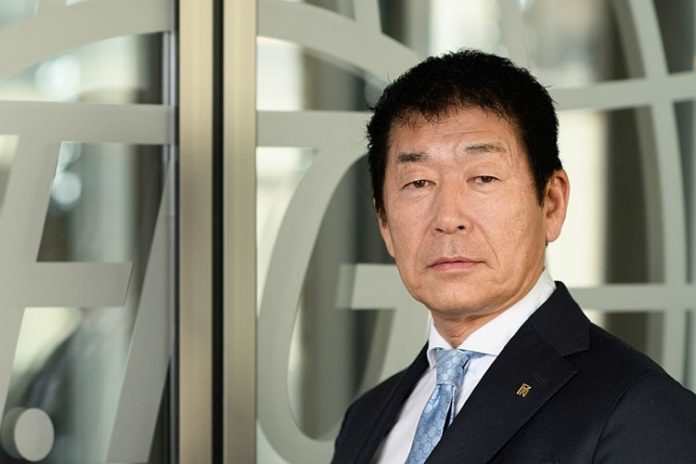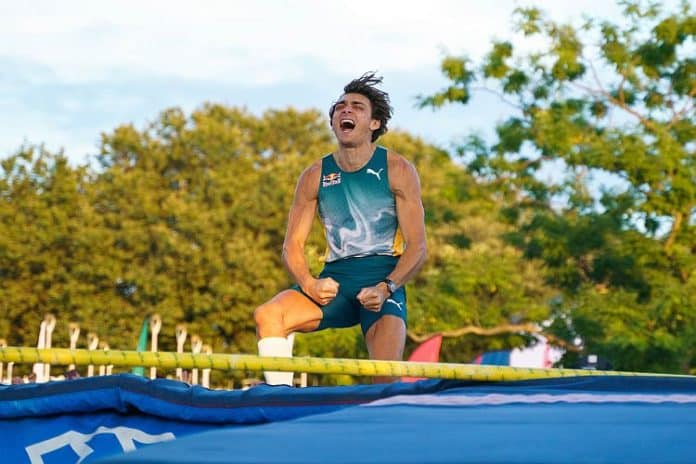★ The Sports Examiner: Chronicling the key competitive, economic and political forces shaping elite sport and the Olympic Movement.★
★ To get the weekday Sports Examiner Recap by e-mail: sign up here! ★
★ Friends: Thank you to our 51 donors (!) who have helped meet our technical costs. If you’re enjoying TSX, please chip in with your donation.. Add your support to make this site even better. ★
≡ THE BIG PICTURE ≡
“Current technology enables a screening procedure for ‘sports sex’ that involves a simple cheek swab to determine sex chromosomes. This screen can be performed reliably and quickly and should be done in duplicate to ensure reliable results.”
That’s from a group of 32 academics and researchers at universities and institutes in Canada, Denmark, Great Britain, Norway, Qatar, South Africa, Spain, Sweden, Switzerland and the United States combined for an editorial published online on 10 August in the Scandinavian Journal of Medicine & Science in Sports.
The authors note that while the bizarre and often unhelpful gender-testing procedures of the past were finally eliminated in 1999, better and more dignified and useful processes are available today.
At the core of the comment was the Paris Olympic Games furor over boxers Imane Khelif of Algeria (age 25) and Chinese Taipei’s Yu-ting Lin (28), who won the women’s 66 kg and 57 kg classes, and have been competing in the women’s division for their entire careers. They were disqualified for not meeting “eligibility requirements” during the 2023 World Women’s Boxing Championships by the International Boxing Association, which was expelled from the Olympic Movement by the International Olympic Committee later in the same year.
The authors’ editorial, titled “Fair and Safe Eligibility Criteria in Women’s Sport” builds off of a study reported by some of the same authors in March 2024, “The International Olympic Committee Framework on Fairness, Inclusion and Nondiscrimination on the Basis of Gender Identity and Sex Variations Does Not Protect Fairness for Female Athletes.” In short:
“[W]e explained how endogenous testosterone production during male development leads to performance advantages arising from well-established sex-based differences in body size, muscle mass, endurance, speed, strength, and power.
“These physical advantages are so large that they necessitate a separate and protected female category that excludes male advantage to ensure fair and safe competition for female athletes. The unfortunate developments in the 2024 Olympic Games compel these matters to be revisited.”
Recognizing that prior methods of gender screening violated concepts of athlete consent, dignity, and confidentiality, the editorial insists, however, that the situation is different now than in 1999:
“Today, 25 years later, there is ample evidence that biological sex is a crucial differentiator in ensuring fairness and influencing safety for female athletes.
“The participation of male-born competitors (e.g., transgender women) and athletes with certain XY [differences in sex development] in female sport is a growing concern. These athletes experience male-typical development from testes producing testosterone, with resultant physiological differences creating athletic advantages and safety risks, even in athletes with XY DSDs who might have been observed as female at birth.”
The authors go further than asking for a simple cheek-swab test:
● “The ethical framework that governs modern genetic testing is thorough and, importantly to overcome the shortcomings of the past, it emphasizes individual consent, confidentiality, and dignity.”
● Rather than simply using the test results for a yes/no determination, the test is only the gateway to more intensive care:
“The results of this sex chromosome screening should be used to indicate the need for follow-up tests as part of standard medical care, including counseling and psychological support as part of the ongoing duty of care to the athlete.”
● And testing at worldwide championship events is the wrong approach altogether:
“[T]o preserve confidentiality and dignity, athletes must be screened early – perhaps when they first register in the female category in an affiliated competition and before they are thrust into the global spotlight. This would prevent the individual targeting and unsolicited public scrutiny that has occurred numerous times, most recently in the 2024 Olympic Games.”
The authors explain that “An early, cohort-wide approach that treats all participants equally is overwhelmingly preferable to the current approach that invites targeted testing based on allegation, suspicion, subjective assessment, and bias.”
The short comment does not go into costs of the test, time, supplies and personnel needed and all the other details. It does point to a survey taken at the Atlanta 1996 Olympic Games that 82% of women athletes supported the sex-testing effort, which also used the cheek-swab method.
It was further noted that World Aquatics has specifically identified genetic testing as a procedure to be used. The authors close with a call for care rather than confrontation:
“Rather than ‘policing female bodies,’ screening followed by comprehensive follow-up in the rare cases that require extra consideration, with emphasis on the duty of care to every athlete, will ensure preservation of the female category for fair and safe sport.”
The IOC’s “Framework on Fairness, Inclusion and Non-Discrimination on the Basis of Gender Identity and Sex Variations,” was published in November 2021 and did not impose any hard-and-fast rules on the International Federations, but demanded recognition of the need for a “rights-respecting and evidence-based eligibility criteria for sex-segregated sports competition.”
If there is any good that might come out of the Paris Olympic circus on this issue, a further discussion of early, widespread testing might be a place to start, including the costs, logistics and process.
¶
★ Receive our exclusive, weekday TSX Recap by e-mail by clicking here.
★ Sign up a friend to receive the TSX Recap by clicking here.
★ Please consider a donation here to keep this site going.
For our updated, 547-event International Sports Calendar for the rest of 2024 and beyond, by date and by sport, click here!

























